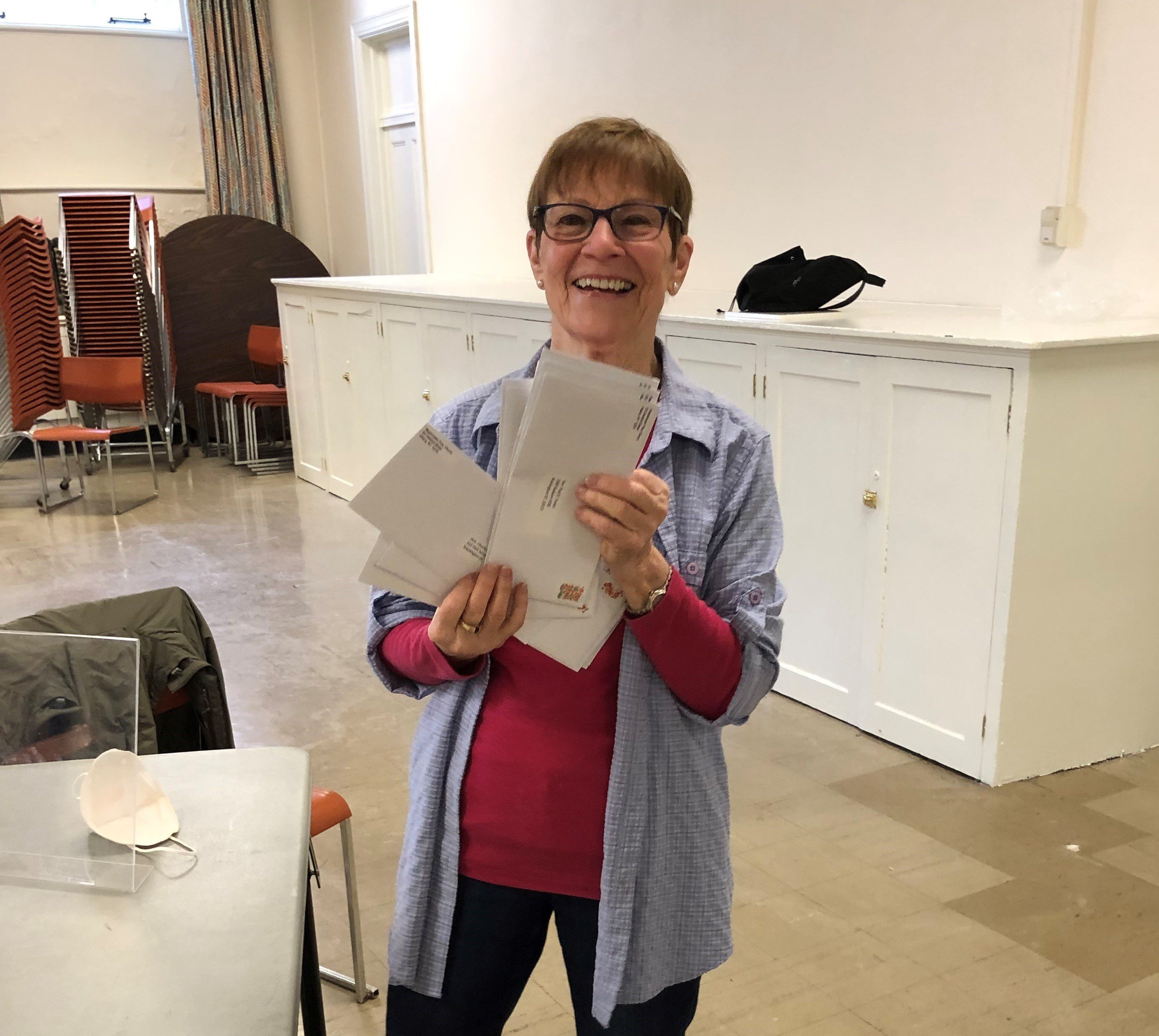By Jennifer Gonzalez
As a young girl growing up on a farm just north of Peoria, Illinois, Judy Hartley saw the abundance of grain overflowing after harvest.
She recalls being told how the grain would be shipped overseas to feed those in Africa and other countries who needed the food. “I couldn’t understand how anyone could starve or be hungry when there was so much abundance,” said Hartley, moderator at Albany Presbytery in New York.
Today, Hartley no longer just wonders about that question – she is doing something about it. As a Bread for the World member for over 20 years, Hartley knows the important role advocacy plays in ending hunger.
She led two Offering of Letters at her church when she lived in Illinois. And during Lent this year, she gathered people from her church – Westminster Presbyterian in Albany – for six consecutive weekends and participants at the Breakfast Club of the Focus Churches of Albany for six consecutive Thursdays to conduct Offering of Letters.
While people breakfasted on an oatmeal, omelets, turkey sausage or chicken patty, and corned beef or grits, Hartley told those eating that “Bread is working to end world hunger and that they can use their vote as citizens of the state and the country to let their legislators know what they want for families and adults.”
In total, Hartley collected 101 letters from people participating in the breakfast program – mostly the homeless. The letters focused on urging Congress to make permanent the expanded Child Tax Credit (CTC).
The CTC was expanded as part of the American Rescue Plan passed by Congress. The expansion contributed to substantial reductions in poverty and hunger. Unfortunately, the improvements expired last year.
Bread is urging Congress to advance progress on ending hunger by making the improvements permanent.
Hartley said she chose to conduct an Offering of Letters during Lent because “I don’t believe in giving something up for Lent, but I believe in taking something on, something that benefits others.”
Hartley, mother to two grown sons and grandmother to two granddaughters, learned early on the importance of helping those in need. She attended a two-room country school where students would take turns bringing home an extra lunch pail so they could fill it up with food and bring it back to school the next day to help a student in need.
As an adult, she traveled twice to Malawi with an Urbana, Illinois church mission team to build shallow wells for clean drinking water, complete the painting of a new sister church building, and form friendships with the church’s Malawian brothers and sisters.
Without a doubt, Hartley said her faith is the driving force behind her advocacy work with Bread. “Jesus said feed the hungry. I will not be with you always, but you are my hands and feet. It’s what we were asked to do,” she said.
Jennifer Gonzalez is managing editor at Bread for World. Bread Regional Organizer Cheri Andes provided the information for this article.



